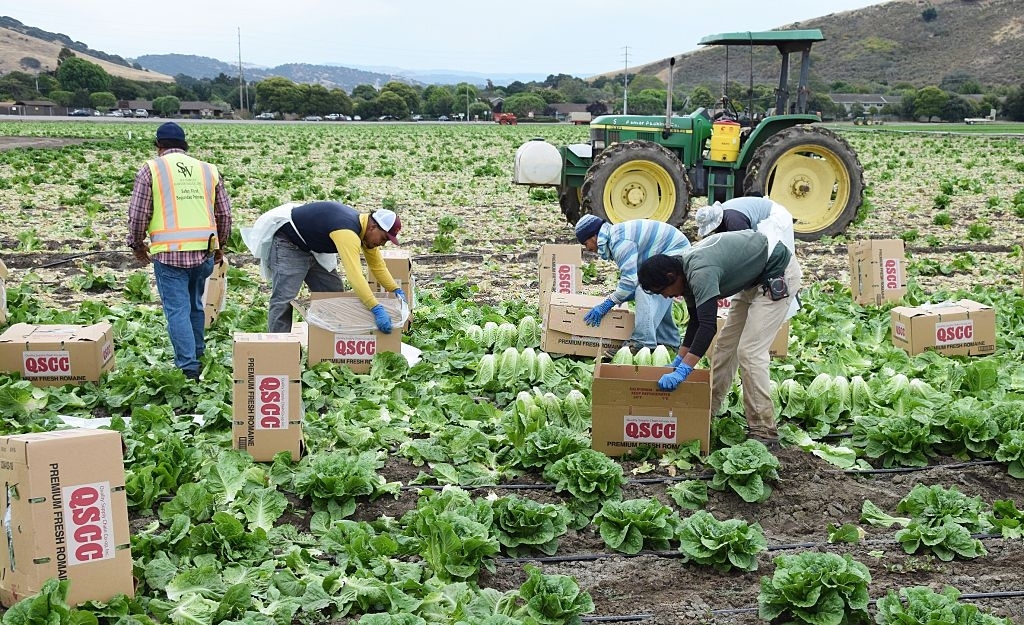Farm Worker Jobs in Italy
Italy is renowned for its rich agricultural heritage, producing some of the world’s finest wines, olive oil, fruits, and vegetables. Farm work in Italy offers a unique opportunity to experience the country’s rural lifestyle, contribute to its agricultural sector, and immerse oneself in Italian culture. Whether you’re a resident or an international applicant, this guide will provide detailed steps on how to secure farm worker jobs in Italy.
Understanding the Agricultural Industry in Italy
Italy’s agriculture is diverse and region-specific. The country is divided into various agricultural zones, each known for specific products. Understanding the landscape and seasonal demands is crucial for finding farm work.
Major Agricultural Regions
- Tuscany: Known for its vineyards and olive groves.
- Sicily: Famous for citrus fruits, olives, and vegetables.
- Piedmont: Renowned for wine production and rice paddies.
- Puglia: Major producer of olive oil and tomatoes.
- Veneto: Known for wine, corn, and soybeans.
Types of Farm Work
- Fruit Picking: Harvesting fruits like grapes, apples, cherries, and citrus.
- Vegetable Harvesting: Collecting tomatoes, zucchini, peppers, and other vegetables.
- Olive Picking: Harvesting olives for oil production.
- Vineyard Work: Involves pruning, harvesting, and maintenance of vineyards.
- General Farm Labor: Tasks include planting, weeding, irrigation, and maintenance.
Step 1: Understand the Basic Requirements
Before applying for farm work, ensure you meet the basic requirements:
Age and Physical Fitness
- Minimum Age: Typically, you must be at least 18 years old.
- Physical Fitness: Farm work is physically demanding, requiring stamina and strength.
Language Proficiency
While not always mandatory, basic knowledge of Italian can be beneficial for communication with employers and coworkers.
Step 2: Obtain Necessary Documents
Work Visa (For Non-EU Citizens)
Non-EU citizens need a work visa to work in Italy. The process involves:
- Job Offer: Secure a job offer from an Italian employer.
- Nulla Osta: The employer applies for a work permit (Nulla Osta) on your behalf.
- Visa Application: Apply for a work visa at the Italian consulate in your home country with the Nulla Osta and other required documents.
- Residence Permit: Upon arrival in Italy, apply for a residence permit (Permesso di Soggiorno).
EU Citizens
EU citizens do not require a work visa but must register with the local authorities and obtain a residence certificate if staying for more than three months.
Step 3: Acquire Relevant Skills and Experience
Farming Experience
While not always mandatory, prior farming experience can be advantageous. You can gain relevant experience through:
- Volunteering: Programs like WWOOF (World Wide Opportunities on Organic Farms) offer volunteer opportunities on farms in exchange for room and board.
- Seasonal Work: Short-term seasonal jobs in your home country can provide hands-on experience.
Agricultural Training
Consider enrolling in agricultural courses or training programs to enhance your skills. Topics may include organic farming, crop management, and sustainable agriculture practices.
Step 4: Search for Farm Worker Jobs
Online Job Portals
Use online job portals to search for farm worker jobs in Italy. Popular platforms include:
- Indeed Italy: Offers a wide range of agricultural job listings.
- EURES: The European Job Mobility Portal, listing jobs across Europe.
- Job in Country: Specialized in agricultural job listings in Italy.
Seasonal Work Websites
Websites like SeasonWorkers and PickingJobs list seasonal agricultural jobs across Europe, including Italy.
Farm Associations
Contacting farm associations like Coldiretti and Confagricoltura can provide job leads and valuable industry insights.
Step 5: Prepare Your Application
Resume and Cover Letter
Prepare a professional resume and cover letter highlighting your qualifications, experience, and skills. Include details such as:
- Previous Farming Experience: Highlight any previous experience in agriculture or related fields.
- Skills: Emphasize relevant skills such as physical stamina, machinery operation, and knowledge of agricultural practices.
- Language Proficiency: Indicate your proficiency in Italian and any other languages.
References
Provide references from previous employers or instructors who can vouch for your skills and work ethic.
Step 6: Ace the Interview
If your application is shortlisted, you’ll be invited for an interview. Here’s how to prepare:
Research the Farm
Learn about the farm’s operations, products, and values. This will help you tailor your responses to align with the farm’s needs.
Practice Common Interview Questions
Prepare answers for common interview questions such as:
- Why do you want to work on our farm?
- Describe your previous farming experience.
- How do you handle physically demanding work?
Demonstrate Professionalism
Dress appropriately, arrive on time, and bring copies of your resume, certifications, and any other relevant documents.
Step 7: Understand the Working Conditions
Working Hours
Farm work often involves long hours and early starts. Be prepared for flexible working hours, including weekends and holidays, especially during harvest seasons.
Salary and Benefits
Salaries for farm workers in Italy vary based on factors such as the type of work, region, and experience. On average, farm workers earn between €800 to €1,200 per month. Benefits may include accommodation, meals, and transportation.
Working Environment
Understand the physical and mental demands of the job. Farm work can be physically challenging and requires a high level of endurance, attention to detail, and the ability to work well under pressure.
Step 8: Continuous Learning and Improvement
Ongoing Training
Stay updated with industry trends and best practices through ongoing training and professional development courses. This can enhance your skills and make you more competitive in the job market.
Networking
Join professional associations and agricultural organizations. Networking with industry professionals can provide valuable insights and job leads.
Step 9: Explore Long-Term Opportunities
Permanent Employment
If you’re interested in long-term employment, express your interest to your employer. Demonstrating reliability, strong work ethic, and commitment can increase your chances of securing a permanent position.
Career Advancement
Consider advancing your career in agriculture by pursuing further education or specialized training. Roles such as farm manager, agricultural consultant, or agronomist offer higher salaries and responsibilities.
Farm Worker Jobs in Italy
Securing a farm worker job in Italy involves understanding the agricultural industry, meeting specific requirements, acquiring relevant skills and experience, and effectively searching and applying for jobs. Whether you are a resident or an international applicant, the demand for farm workers in Italy presents a promising career opportunity. By following the steps outlined in this guide, you can navigate the process and embark on a rewarding career in the Italian agricultural sector.



